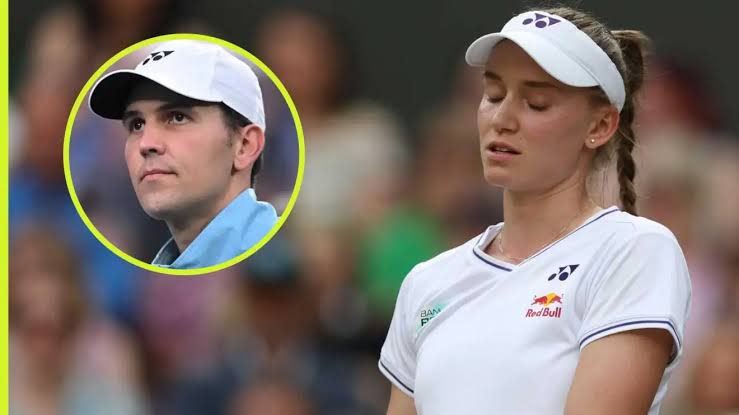CELEBRITY
Elena Rybakina, Stefano Vukov saga: The shocking details about coach’s behaviour leading to ban

The world of professional tennis is often a stage for drama, both on and off the court. The recent situation involving Elena Rybakina and her coach, Stefano Vukov, has captivated the tennis world, raising questions about the complexities of player-coach relationships and the boundaries of professional conduct. While details have been kept somewhat confidential, enough information has emerged to paint a picture of a situation that led to Vukov’s ban from the WTA tour, and Rybakina’s subsequent public disagreement with the decision.
The story began with whispers of alleged misconduct by Vukov. These whispers soon turned into formal complaints, triggering an investigation by the WTA. While the specifics of the alleged behavior have not been publicly disclosed in detail, it’s understood that the accusations centered around actions that were deemed to be in violation of the tour’s code of conduct. These codes are designed to ensure a safe and respectful environment for all players, coaches, and staff involved in professional tennis.
The WTA, bound by its internal regulations and ethical considerations, was obligated to investigate the claims. This process, while necessary, is often delicate, requiring careful consideration of the evidence and due process for all parties involved. It’s a balancing act between protecting the integrity of the sport and ensuring fairness for those facing accusations.
The investigation into Vukov’s conduct was reportedly thorough and involved interviews with multiple individuals. The WTA’s process for such matters is designed to be confidential to protect the integrity of the investigation and the privacy of those involved. This confidentiality, while necessary, often leaves the public with limited information, leading to speculation and conjecture.
Following the investigation, the WTA made the decision to ban Vukov from the tour. This ban, a significant sanction, sent shockwaves through the tennis community. It underscored the WTA’s commitment to enforcing its code of conduct and maintaining a professional environment. However, it also sparked controversy, particularly given Rybakina’s staunch defense of her coach.
Rybakina’s reaction to the ban was swift and decisive. She publicly expressed her disappointment and disagreement with the WTA’s decision, asserting her belief in Vukov’s innocence. She emphasized her personal experience with Vukov, stating that she had never witnessed any behavior that would warrant such a ban. Her public support for her coach highlighted the close bond they shared and the trust she placed in him.
Rybakina’s defense of Vukov went beyond simply expressing her personal opinion. She also raised concerns about the process itself, suggesting that Vukov was not given a fair opportunity to defend himself against the allegations. She questioned the transparency of the investigation and the fairness of the procedures followed. These accusations of procedural flaws added another layer of complexity to the situation, raising questions about the WTA’s internal mechanisms for handling such matters.
The controversy surrounding Vukov’s ban has ignited a broader discussion within the tennis community about the balance between upholding ethical standards and ensuring due process. Some argue that the WTA has a responsibility to protect players and maintain the integrity of the sport by taking decisive action against misconduct. Others contend that the WTA’s approach can sometimes be perceived as heavy-handed and that individuals should be afforded every opportunity to defend themselves against accusations.
The situation has also highlighted the complexities of coach-player relationships. These relationships are often intensely personal and involve a high degree of trust and loyalty. Players rely on their coaches not only for technical guidance but also for emotional support and mentorship. When a coach faces accusations of misconduct, it can put the player in a difficult position, forcing them to choose between supporting their coach and respecting the authority of the governing body.
The lack of detailed public information about the specific allegations against Vukov has further complicated the situation. While confidentiality is important to protect the integrity of the investigation, it can also lead to speculation and misinformation. In the absence of concrete details, rumors and innuendo can fill the void, potentially damaging the reputations of those involved.
The Rybakina-Vukov saga raises important questions about the WTA’s role in policing conduct within the sport. How can the organization ensure that allegations of misconduct are thoroughly and fairly investigated while also protecting the rights of those accused? How can the WTA balance the need for transparency with the need for confidentiality? These are complex questions that require careful consideration.











